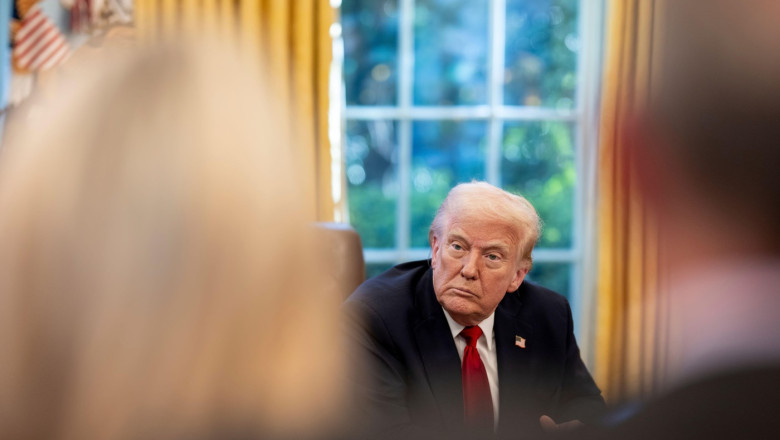Last July, right before Donald Trump’s first and only debate with Joe Biden, a team from Bloomberg Businessweek traveled to Mar-a-Lago to interview Trump about his plans for the economy if he were to return to the White House.
The 90-minute discussion covered all major topics: tax cuts, deregulation, China, the Federal Reserve, and the fate of Fed Chairman Jerome Powell. Afterwards, as we were leaving, our team compared notes on what we had learned and what surprised us the most. In this last category, everyone was shocked – and honestly, a little puzzled – by how eager Trump was to talk about William McKinley, the 25th president. Twice, Trump brought him up without being asked, speaking at length about how McKinley was “the most underestimated president” and one who “enriched this country,” according to Bloomberg.
McKinley was, of course, a fervent protectionist and the author of the McKinley Tariff Act of 1890, which raised average import taxes to nearly 50% – among the highest rates in US history at the time. In hindsight, Trump’s fixation on the man he admiringly called “the tariff king” was a hint that foreshadowed the global trade war he would launch on “Liberation Day,” April 2nd.
Trump’s radical tariff regime shook the markets, bringing the S&P 500 to the brink of a bear market and causing long-term US bond yields to rise. Wall Street titans, including many who had supported Trump, reacted with alarm. Ken Griffin called the tariffs a “huge policy mistake”. Bill Ackman warned of an “economic nuclear war”. Jamie Dimon sadly predicted a recession as a “likely outcome”. The magnitude and abruptness of Trump’s attack on US trading partners only amplified its impact – including the panic that followed. No one could have predicted what was about to happen. This was contrary to what investors believed they knew about Trump: that he should be taken “seriously, not literally”; that, while disruptive and unpredictable, he ultimately longed for a booming stock market and the stamp of success he believed it conferred. So in his opinion, he would never do anything to truly jeopardize this.
Trump’s radical tariff regime shook the markets, bringing the S&P 500 to the brink of a bear market and causing long-term US bond yields to rise. Wall Street titans, including many who had supported Trump, reacted with alarm. Ken Griffin called the tariffs a “huge policy mistake”. Bill Ackman warned of an “economic nuclear war”. Jamie Dimon sadly predicted a recession as a “likely outcome”. The magnitude and abruptness of Trump’s attack on US trading partners only amplified its impact – including the panic that followed. No one could have predicted what was about to happen. This was contrary to what investors believed they knew about Trump: that he should be taken “seriously, not literally”; that, while disruptive and unpredictable, he ultimately longed for a booming stock market and the stamp of success he believed it conferred. So in his opinion, he would never do anything to truly jeopardize this.

